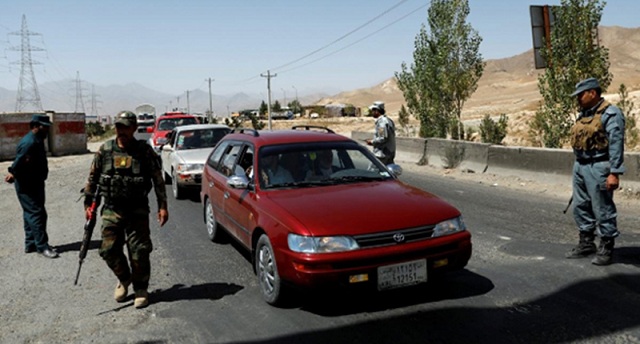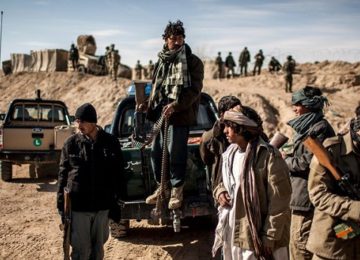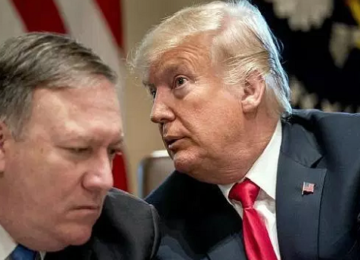The Afghan Taliban have stepped up attacks against security forces, storming of the historic Ghazni city in a pre-dawn raid on Friday being the most recent instance. The raid comes just days after the Taliban killed at least 40 soldiers in a deadly attack on a post in southern Uruzgan province.
The increase in the frequency of attacks comes at a time when Taliban’s political envoys have held preliminary and direct talks with senior American diplomat Alice Wells in Qatar, and more talks are likely in the next month. The meeting on July 23 was seen as a major shift in the US’s longstanding position on Afghanistan, as it could press the Taliban to sit face-to-face with the Afghan government.
Meanwhile, Taliban have also launched diplomatic move to give a boost to their relations with the international community. They confirmed on Saturday that political representatives of the insurgent group have wrapped up a four-day visit to Uzbekistan on August 10. Taliban political spokesman Suhail Shaheen told Daily Times that the Taliban delegation headed by Qatar office chief Sher Abbas Stanekzai held talks on how to achieve peace in Afghanistan with the Uzbek Foreign Minister and presidential special envoy. Uzbekistan President Shavkat Mirziyoyev has offered to host talks between the Taliban and the Afghan government in March.
Some Afghan experts are of the view that the increase in frequency of attacks is meant to mount pressure to get a better bargain in talks with Americans and other regional stakeholders. However, most experts agree that surge in violence can have negative impact on peace efforts, including the recently launched dialogue between Afghanistan and Pakistan under which both countries agreed to ‘undertake action against fugitives and the irreconcilable elements posing security threats to either of the two countries’.
On August 10, Afghan ambassador Omar Zakhilwal met Army Chief General Qamar Javed Bajwa and recalled ‘bilateral commitments which in turn help with our peace efforts and reduction of violence’.
Though the army’s media wing, Inter-Services Public Relations, did not issue a statement about the meeting, the Afghan ambassador tweeted it, calling for ‘full cooperation’ as per the Afghanistan-Pakistan Action Plan for Peace and Solidarity, or APPAPS [Both countries formally launched APPAPS, a joint action plan for cooperation on counter-terrorism, reduction of violence, bilateral trade and transit, connectivity and people-to-people contacts, last month].
Although Pakistani authorities insist that fighting the Taliban insurgents on the Afghan side of the border is the responsibility of the Afghan forces and their foreign allies, Kabul expects Pakistan to also play a role in reduction of violence, as agreed under the APAPPS.
Though there is no ceasefire in effect at the moment, Afghans’ frustration at the surge of violence is logical. Reports suggest that Afghan President Ashraf Ghani is likely to declare another ceasefire during the Eid-ul-Azha. Taliban, who had refused to extend their three-day ceasefire during Eid-ul-Fitr, have not yet given any indication about another ceasefire.
Afghans had widely welcomed the Taliban ceasefire, however, statements were made in the media by some Afghan officials that most of the nearly 30,000 Taliban insurgents, who had entered cities during the ceasefire, did not go back to the battlefield. Such statements can increase suspicions among the Taliban who may be cautious to declare a second ceasefire.
But Taliban will have to take confidence buildings measures if they expect the same from the US in their talks in Qatar. The Taliban sources have confided to Daily Times that the group’s political representatives have called for recognition for their office in Qatar, and removal of the leaders’ names from the sanctions list of the Security Council.
Thus, attacks like Ghazni are helpful neither for direct US-Taliban talks nor for the Pak-Afghan talks. Taliban must give a chance to the Qatar process as bilateral round of talks has been started for the first time in 17 years, and that too on their terms. Instead of resorting to more attacks, Taliban should respond positively with reduction in violence ahead of Eid-ul-Azha.
During the battle for the control of Ghazni, some 150 kilometers southwest of capital Kabul, Taliban and Afghan officials have come up with claims of inflicting heavy losses on each other. Taliban spokesman Zabihullah Mujahid has claimed in a statement that about 200 security personnel have been killed in the fight. On his part, General Mohammad Radmanesh, a spokesperson for the Afghan Ministry of Defence, has claimed the killing of at least 150 Taliban fighters. While the US forces in Afghanistan said on Friday, they ‘responded with close-air support this morning in Ghazni’ that was in line with President Donald Trump’s Afghan strategy, allowing increased air strikes against the Taliban.
This article originally appeared in Daily Times on August 13, 2018. Original link.
Disclaimer: Views expressed on this blog are not necessarily endorsed or supported by the Center for Research and Security Studies, Islamabad.








